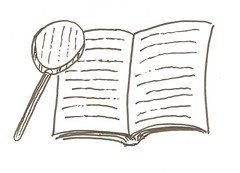 On Thursday afternoon Anne Arnold from the World Bank lead a breakout session with around 20 summit attendees on digital media, technology and government accountability. She works for the World Bank program on Communication for Governance & Accountability, which she says is a “trust fund, which means it doesn't have to do what the rest of the World Bank does.” Anne started the session by asking why digital media are better (or are they?) than other tools at holding governments accountable — what new aspects does digital media bring to the push for accountability and transparency? “You have the experience of working with digital media, and the World Bank has almost no experience with digital media,” she confessed, asking those present to share their experiences and thoughts.
On Thursday afternoon Anne Arnold from the World Bank lead a breakout session with around 20 summit attendees on digital media, technology and government accountability. She works for the World Bank program on Communication for Governance & Accountability, which she says is a “trust fund, which means it doesn't have to do what the rest of the World Bank does.” Anne started the session by asking why digital media are better (or are they?) than other tools at holding governments accountable — what new aspects does digital media bring to the push for accountability and transparency? “You have the experience of working with digital media, and the World Bank has almost no experience with digital media,” she confessed, asking those present to share their experiences and thoughts.
Global Voices author Kevin Rennie started by describing the Australian government's efforts to make services and policies available online and to involve people in the development of new policies by allowing them to leave comments online. He pointed out that these efforts were happening at the same time as discussions on a new country-wide Internet filter. The Australian public ended up using the transparency system to protest the Internet filter instead of discussing other policies, and the government was forced to create an additional online space to give citizens room to express their views.
Herbert Spencer brought up the idea of inverse surveillance, where people keep a close eye on what government is doing, as well as more traditional transparency, where government makes itself open to citizens. He emphasized the importance of making information easy for citizens to understand by giving it context.
Global Voices co-founder Ethan Zuckerman said there are two ways to think about transparency. In some countries, governments have a lot of information, and the goal is to get them to unlock it and make it transparent. In other countries, governments simply don't have this information. In Ghana, for example, the government does not keep good records on property ownership. In countries where the governments have information, the “US” model being pushed by the Sunlight Foundation, where governments put data online, works. In countries where governments don't have information, the “UK” model, where projects exist that get citizens to contribute their own data, works better. If the government doesn't have data, it has to come from the community.
A new project in East Africa called Twaweza is getting citizens involved in gathering information. The project is largely mobile-phone based, as Internet isn't prevalent. Twaweza focuses on water, health and education, and is trying to operate through existing channels of communication such as churches and businesses. They're also doing a weekly mobile survey to collect information from the community.
Donna Martinez stressed the importance of accessibility: PDFs pose problems for people with slow connections or people who use screen readers to access information online.
An employee of the Brazilian House of Representatives who supervises the country's e-Democracy project disuccsed the need for peeople to understand how Parliament works. They need to “come into the machine” to help push transparency from the inside. Politicians like e-governance because it makes their own work more visible, so sometimes the objectives of government and activists align.
Anne asked if there are any mechanisms that hold lawmakers accountable to see whether they've considered what people have said via open governance projects like the ones in Australia and Brazil. She worried that “consultations” with citizens are often ignored when policies and programs are implemented.
In Brazil, the challenge was how to organize content that came in from people. Once this information was organised and given to the correct member of parliament, for example on a climate change bill, some suggestions were incorporated into the text of the bill.
Paloma Baytelman works for national Library of Congress in Chile. She said the library didn't get a chance to implement its technology for transparency ideas because there wasn't time. She proposed three different ideas for what to do: sites that promote accountability by monitoring government, sites that build community and encourage participation, and sites that collect data. She believes politicians don't currently support open government initiatives but that they will in time.
Paloma also emphasized the importance of using existing networks — for example, she said Global Voices has a “huge network of really lovely people” — in transparency efforts. It's important to be focused, have a strategy and to use these networks well. “It's not about the tools,” she said. “It's about the people and the objectives.” Technology and transparency efforts won't go anywhere without a strategy and a commitment.
Awab Alvi of Pakistan noted that the World Bank and the international community can put pressure on governments on a project to project basis. In some cases, he said, governments want to implement e-governance or open government initatives but don't have the funds, and they use this as an excuse.
In the Chilean community of Peñalolen, the local government gave citizens the chance to submit ideas different projects in their communities, then took 50 and had the community vote to select 10 to implement. This gave citizens the chance to be part of government action and political issues. The ideas submitted were very practical, often cheap things: “sometimes the political people are thinking the best solutions are very complex solutions, but sometimes the best solutions are very cheap solutions,” said the person describing the project. Perhaps the World Bank can fund similar initiatives?
Anne mentioned similar projects where authorities, rather than citizens, come up with projects and let citizens votes. Perhaps it's better if citizens propose projects themselves?
Catherine Bracy of the Berkman Center for Internet and Society urged funders to take risks with funding. A lot of funders play it safe, she said, but they should fund more projects. There is a lot that can be learned from projects that don't succeed. Catherine also said it's important not to conflate tools with communication channels. It's not enough to make information transparent. You still have to have a mechanism for putting context around the information and delivering it to citizens who can make use of it. They're the ones who will hold their governments accountable: transparency isn't transparency unless citizens can use the information. Catherine said the Internet's power is in processing vast amounts of data, but wee still need people who can turn this data into stories. We need to translate data into something citizens can consume.
Technology for Transparency Network researcher Namita Singh said that getting information from the government is not necessarily the most important thing. The Indian government gives information, but citizens can't understand it. In any ICT project there are few places where it can be all online. There is a need to couple the online with the eoffline, especially in regions without good access to ICT.
Technology for Transparency Network researcher Sopheap Chak said that in Southeast Asia, the government is more controlling of its information. What is needed is to provide an alternate channel for this information. Donors should try to work with people and civil society, not just governments.
Anne closed by emphasizing a few main points:
- Accountability needs information from bottom up. Governments don't have all the data or the capacity to make it available.
- This data has to be well organized.
- There is a need to provide context so people actually understand what the data means.
- People need to have power if transparency is going to lead to accountability. They need channels of action.
- Online media needs to be supported by other means of communication.











2 comments